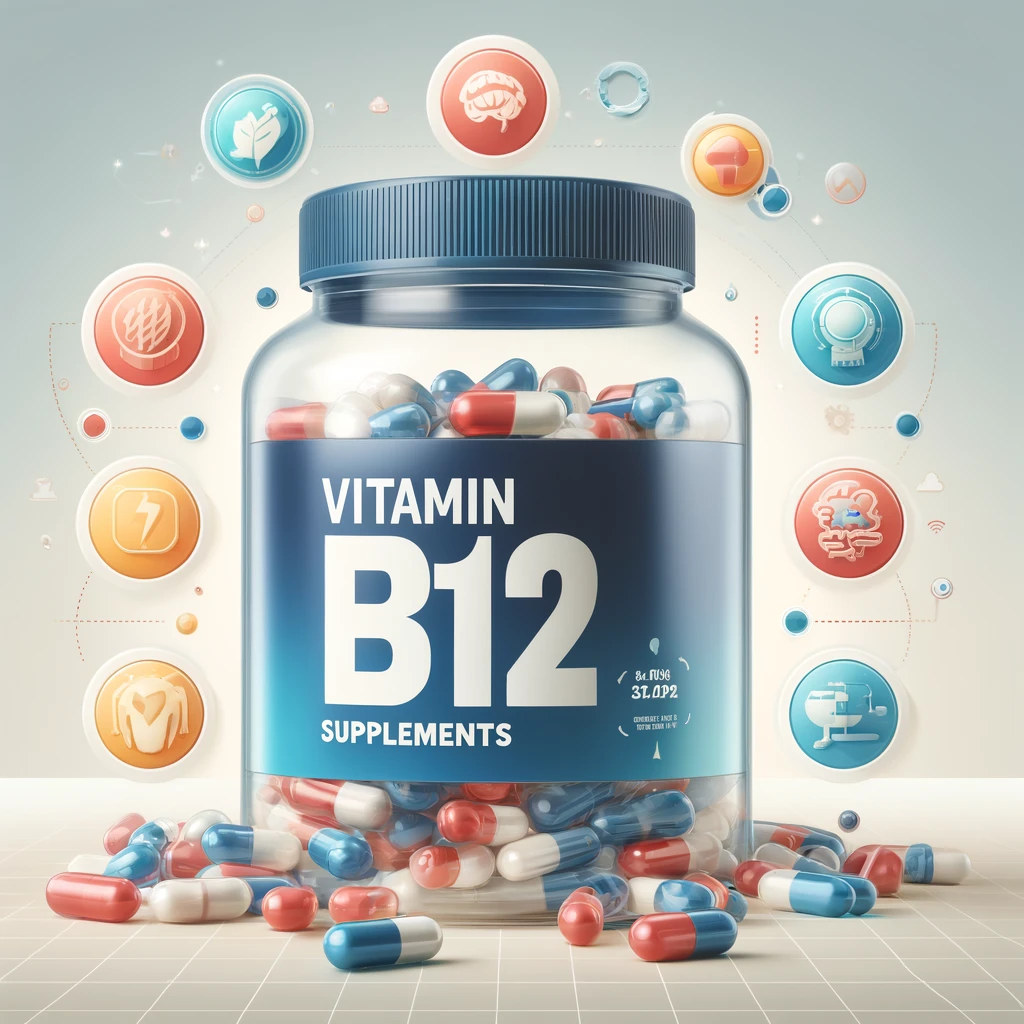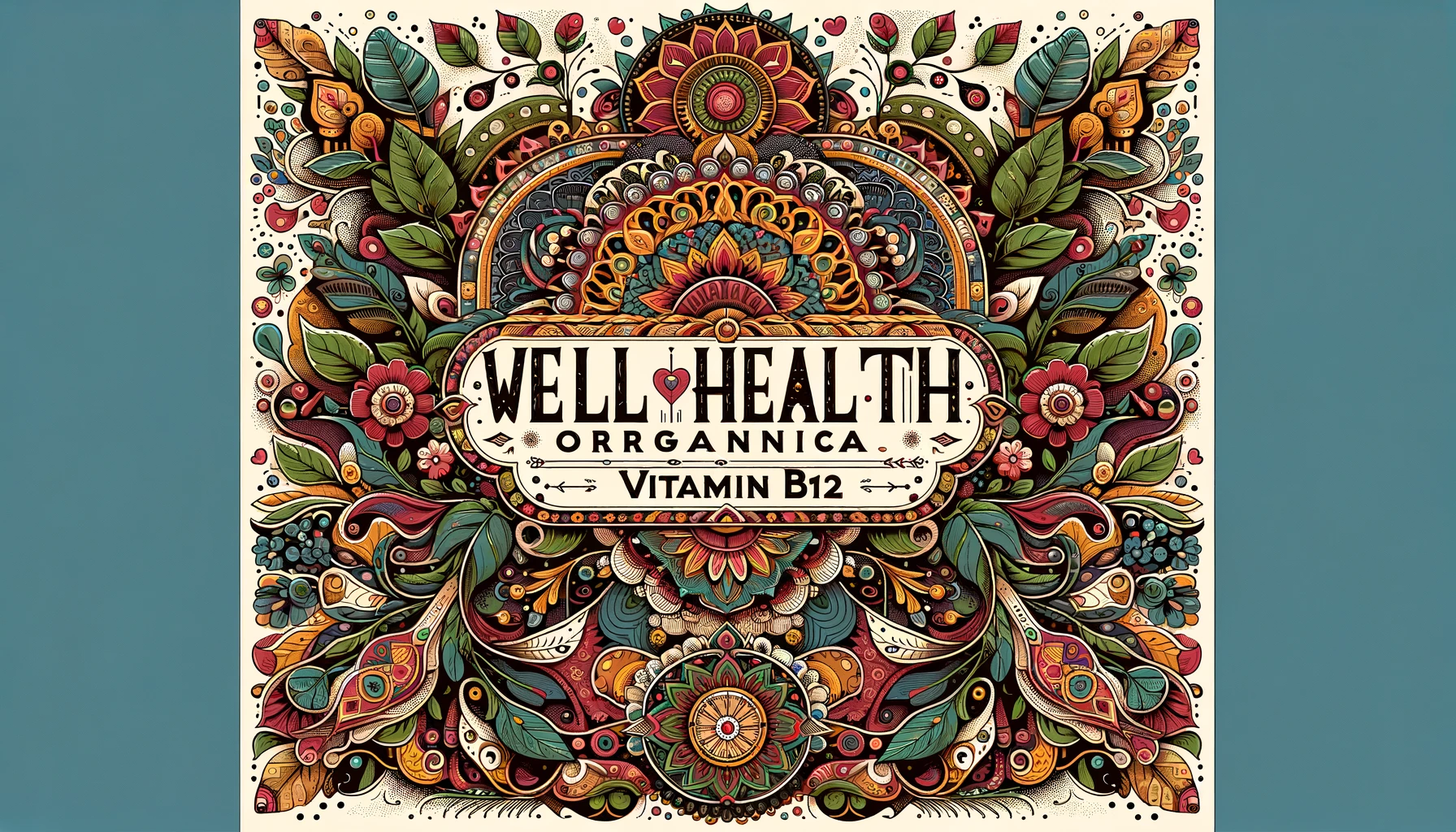
Wellhealthorganic Vitamin B12 | Organic Wellbeing and Vitamin B12
Wellhealthorganic Vitamin B12 refers to a holistic approach to health that emphasizes the importance of consuming natural and organic products, which are free from synthetic chemicals and additives. This approach not only nurtures the body but also promotes a sustainable environment. When discussing organic wellbeing, one cannot overlook the critical role of Vitamin B12, a vital nutrient essential for various bodily functions, including nerve tissue health, brain function, and the production of red blood cells.
In the context of organic wellbeing, Vitamin B12 is particularly notable for its sources and benefits. Predominantly found in animal products, its availability in organic forms is crucial for those adhering to an organic diet. This introductory section explores the synergy between organic lifestyle choices and the optimization of health through the adequate intake of Vitamin B12, setting the stage for a deeper understanding of its importance and benefits discussed in the subsequent sections of this blog.
The Importance of Organic Vitamin B12 for Health
Vitamin B12, also known as cobalamin, is a crucial water-soluble vitamin that is essential for various bodily functions, including DNA synthesis, red blood cell formation, and neurological function. Obtaining B12 from organic sources ensures that the nutrients are derived from plants or animals raised without synthetic pesticides or fertilizers, potentially reducing exposure to harmful substances and enhancing the vitamin’s bioavailability and benefits.
The primary concern with Vitamin B12 deficiency is that it can lead to serious health issues, such as anemia, neurological disorders, and impaired immune function. Emphasizing the importance of organic Vitamin B12 is crucial because it aligns with a holistic approach to health that encourages not only nutritional adequacy but also environmental and personal wellbeing. Encouraging the consumption of vitamin B12 from organic sources can help ensure that individuals are receiving a pure form of the nutrient necessary for optimal health.
Health Benefits of Organic Vitamin B12
Organic Vitamin B12 offers a host of health benefits. It supports the maintenance of energy levels, enhances mental clarity, and helps in the prevention of major birth defects during pregnancy. Additionally, it plays a key role in supporting bone health, reducing the risk of osteoporosis, particularly in the elderly. With organic Vitamin B12, there may be added health benefits due to lower levels of contaminants and higher nutritional content often found in organic foods.
Furthermore, consuming organic Vitamin B12 helps support a sustainable and ethical food system. By choosing organic sources, individuals contribute to lesser environmental impact, promoting a healthier planet alongside personal health. This is particularly significant in the context of contemporary health and environmental concerns, making organic Vitamin B12 a responsible choice for those seeking to maintain their wellbeing in a holistic manner.
Addressing Vitamin B12 Deficiency with Organic Sources
The risk of Vitamin B12 deficiency is notably higher in certain groups, such as vegetarians, vegans, and older adults, due to dietary restrictions or decreased absorption capacity. Organic Vitamin B12, available in various forms such as certified organic supplements and fortified foods, provides a viable solution to this challenge. It ensures that individuals in these risk groups can access a reliable source of the vitamin without compromising on their ethical or dietary principles.
Integrating organic Vitamin B12 into the diet is also essential because it is naturally found in significant amounts only in animal products. Vegetarian and vegan sources of organic Vitamin B12 include fortified plant-based milks, cereals, and nutritional yeast, offering alternative routes to meet dietary requirements and prevent deficiency symptoms, which can be severe and often irreversible if left unchecked.

Sources of Natural and Organic Vitamin B12
Finding effective sources of Vitamin B12 in a fully organic diet can be quite challenging due to its natural occurrence primarily in animal products. However, understanding where to find organic sources of this essential nutrient is crucial for maintaining optimal health, particularly for those following vegetarian or vegan dietary practices. This section explores various natural and organic sources of Vitamin B12, which are essential for producing red blood cells and maintaining proper nerve functions.
Natural Sources of Vitamin B12
For non-vegetarians, the richest sources of Vitamin B12 include organ meats (like liver and kidney), seafood (such as clams, sardines, and salmon), and dairy products. These foods not only provide B12 but also come with a host of other nutrients essential for health. For those on a plant-based diet, fortified foods are the primary source. Certain types of nutritional yeast, fortified plant milks, and breakfast cereals can be excellent organic choices to consider.
Organic Sources of Vitamin B12
Adopting an organic lifestyle does not mean you have to compromise on your Vitamin B12 intake. Organic dairy products and eggs from free-range chickens serve as great options. Moreover, the market has seen a growing number of organic fortified foods such as organic soy products and certain specialty grains, which are engineered to include this vital nutrient. It’s important to look for certification labels to ensure the organic integrity of these foods.
How Vitamin B12 Functions in the Body

Vitamin B12, also known as cobalamin, is a crucial water-soluble vitamin that plays a significant role in many of the body’s essential functions. One of its primary roles is in the formation of red blood cells and DNA synthesis. A deficiency in Vitamin B12 can lead to serious health issues, including anemia and neurological disorders. This section explains the complex processes and vital functions governed by this essential nutrient.
Furthermore, Vitamin B12 is integral in the proper functioning of the nervous system. It aids in the maintenance of the myelin sheath, the protective covering that ensures effective communication between your nerves. Without B12, myelin is damaged, which can lead to cognitive impairments and neuropathy. Therefore, proper intake and absorption of Vitamin B12 are crucial for maintaining neurological health and overall wellbeing.
Metabolism and Energy Production
Vitamin B12 plays a key role in the metabolism of every cell in the human body and is particularly essential for energy production. It aids in converting carbohydrates into usable glucose, which is a major energy source for the body. This is why one of the common symptoms of B12 deficiency is fatigue or lack of energy. Understanding the metabolic pathways influenced by Vitamin B12 can help individuals appreciate why maintaining adequate levels is important for sustained energy levels.
Role in Brain Health and Cognitive Function
Vitamin B12’s contribution to brain health cannot be understated. It influences brain function directly through its role in synthesizing neurotransmitters and maintaining neuronal integrity. Adequate levels of Vitamin B12 are associated with reduced risk of memory loss and cognitive decline in the elderly. Studies have linked sufficient B12 levels to a decreased risk of several brain disorders, including Alzheimer’s disease. Hence, Vitamin B12 is not only fundamental for cognitive maintenance but also for cognitive longevity and the prevention of age-related cognitive issues.
Benefits of Integrating Organic Vitamin B12 into Your Diet
Integrating organic Vitamin B12 into your diet boasts numerous health advantages that contribute to overall wellbeing. This essential nutrient plays a crucial role in many bodily functions, including DNA synthesis, red blood cell formation, and the proper functioning of the nervous system. A diet rich in organic sources of Vitamin B12 helps ensure that these processes are efficient and effective, potentially reducing the risk of significant health issues such as anemia and neurological disorders. Furthermore, organic Vitamin B12 sources are often free from synthetic additives and pesticides, providing a purer form of nutrition that supports the body’s natural processes.
Exploring Organic Wellbeing and Vitamin B12: For those following plant-based diets, which typically lack sufficient Vitamin B12, incorporating organic supplements or fortified foods can make a world of difference in maintaining optimal health. Regular consumption of organic Vitamin B12 can improve energy levels, enhance mood, and boost cognitive function. This is particularly important as Vitamin B12 is not synthesized by the body and must be obtained from dietary sources. By choosing organic, individuals can avoid the potential contaminants found in non-organic supplements and benefit from a more natural and holistic approach to health.
Common Deficiencies and Misconceptions About Vitamin B12
Vitamin B12 is crucial for maintaining healthy nerve cells and creating DNA, but despite its importance, there are widespread deficiencies and misconceptions surrounding its consumption and sources. One common misunderstanding is that one can easily obtain sufficient amounts of Vitamin B12 from plant-based diets without supplementation. In reality, Vitamin B12 is naturally found predominantly in animal products, and while fortified foods can offer alternative sources, vegans and some vegetarians often need to rely on supplements to meet their needs. This section explores the nuances of Vitamin B12 intake and dispels prevalent myths.
The Reality of B12 Deficiency
Vitamin B12 deficiency can manifest in many ways, including fatigue, memory impairment, and neuropathy. These symptoms are often mistaken for other medical issues, which leads to underdiagnosis or misdiagnosis. Certain groups, such as the elderly and those with absorption issues due to gastrointestinal surgery or diseases, are particularly at risk. Regular screening and early intervention are critical, yet many healthcare providers overlook the subtle early signs.
Debunking Vitamin B12 Myths
There are several persistent myths about Vitamin B12 that can cause confusion about how best to ensure adequate intake. One of the most common myths is that everyone, regardless of dietary choices, gets enough B12 from their diet. However, studies show that many people, including omnivores, can experience deficiencies. Another misconception is that high doses of Vitamin B12 can solve other unrelated health issues, leading to unnecessary supplementation. Understanding the facts about Vitamin B12 can help individuals make informed dietary choices and support overall health.
Future Perspectives: Organic Supplements and Holistic Health Approaches
As the awareness of holistic health continues to expand, the role of organic supplements like Vitamin B12 is becoming increasingly pivotal. This section delves into the evolving landscape of health and wellness, focusing on how natural supplements are shaping future health trends. By emphasizing prevention over cure, organic supplements not only promise to maintain well-being but also to transform the conventional approach towards healthcare and lifestyle diseases. This trend is supported by burgeoning research that underscores the efficacy and safety of these natural solutions compared to their synthetic counterparts.
Moreover, the integration of holistic health practices—which consider physical, emotional, and mental health—is gaining traction. This approach advocates for a balanced lifestyle that harmonizes diet, exercise, and mental health practices, with organic supplements like Vitamin B12 playing a crucial role. As we move forward, the synergy between advanced scientific research and ancient wellness practices will likely offer innovative and effective health solutions, embodying a comprehensive approach to health care.

